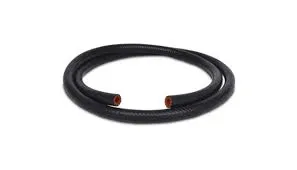Flexible Oil Lines for Enhanced Performance and Durability in Various Applications
Sep . 29, 2024 02:04 Back to list
Flexible Oil Lines for Enhanced Performance and Durability in Various Applications
Understanding the Importance of Flexible Oil Lines in Modern Applications
In the ever-evolving landscape of engineering and construction, flexible oil lines have carved out a niche for themselves as indispensable components in a myriad of applications. These specialized hoses are engineered to transport various types of fluids, predominantly oils, in a safe and efficient manner. Their adaptability, durability, and ease of installation make them a preferred choice across industries, including automotive, aerospace, and manufacturing.
Flexible oil lines are designed to withstand the rigors of high-pressure systems while maintaining flexibility. This unique characteristic is vital because it allows for installation in tight spaces where rigid piping would be impractical. The materials used in these hoses, typically reinforced synthetic rubber or Teflon, enable them to resist wear and tear from both mechanical movement and exposure to harsh chemicals. This durability is essential in environments where oil leakage could lead to catastrophic consequences, such as engine failures or environmental hazards.
In automotive applications, flexible oil lines play a critical role in the lubrication and cooling systems of vehicles. They facilitate the transfer of oil to vital engine components, ensuring proper lubrication and heat dissipation. Without these lines, the risk of overheating and subsequent engine damage would significantly increase. Furthermore, many modern vehicles utilize flexible oil lines to accommodate the intricate designs of engine layouts, where space is at a premium. The flexibility of these lines allows for smoother routing and easier installation, which can save both time and labor costs during vehicle assembly and maintenance.
flexible oil line

The aerospace industry also relies heavily on flexible oil lines. Aircraft systems, including hydraulic systems and fuel lines, require components that can endure extreme pressures and temperatures. Flexible oil lines are engineered to meet these stringent requirements, ensuring the safety and reliability of flight operations. In a field where precision is paramount, the ability of these lines to maintain their structural integrity under varying conditions is essential.
Manufacturing sectors benefit from flexible oil lines as well. In factories where machinery operates continuously, efficient fluid transfer is crucial for maintaining productivity. Flexible oil lines can facilitate the delivery of lubricants to machinery, ensuring that equipment runs smoothly and reducing the risk of downtime due to equipment failure. Furthermore, their ability to be easily routed around obstacles allows for more efficient plant designs and setups.
Another significant advantage of flexible oil lines is their ease of maintenance and replacement. Compared to rigid piping systems, which may require specialized tools and extensive downtime for removal and installation, flexible lines can often be replaced swiftly and with minimal disruption to operations. This ease of maintenance is a critical factor for companies seeking to minimize operational costs and maintain high levels of productivity.
In conclusion, flexible oil lines are fundamental components in a wide range of industries, providing essential fluid transfer solutions that enhance the performance and reliability of machinery and equipment. Their unique properties of flexibility, durability, and ease of installation make them indispensable in modern engineering applications. As industries continue to innovate and evolve, the importance of reliable components like flexible oil lines will only grow, ensuring safer and more efficient operations across the board.
